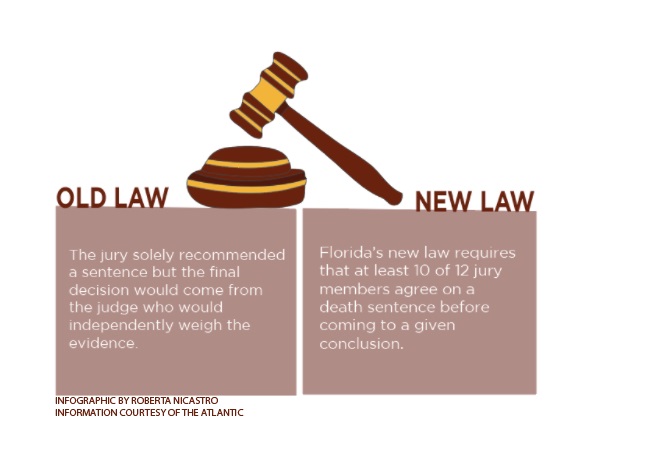Florida Death Penalty Law Declared Unconstitutional
May 11, 2016
After looking over the case of Timothy Lee Hurst, who was sentenced to death row for murdering a fast food restaurant manager in Pensacola in 1998, the U.S Supreme Court declared that the state death penalty law in Florida is unconstitutional.
Before the ruling on Tuesday, May 9, trial judges were responsible for whether or not a criminal received the death penalty; the jury only served as a recommendation to the judge.
The 8-1 decision done by the U.S Supreme Court declared that the law violates the Sixth Amendment of the Constitution, where a jury, not a judge, is supposed to set the sentencing of an individual.
This ruling would not only surface the case of 390 other Florida prisoners who have been sentenced to death row, but could possibly influence other prisoners in states such as Alabama and Delaware–who have similar death sentencing procedures as Florida– to have their cases reviewed and their sentencing lifted.
The new law enacted after the Hurst case requires the jury to unanimously vote on why the suspect should be sentenced to death row. In order for the death sentence to be the final decision in a case, the jury vote needs to be 10-12. Those opposed to the law believe the prisoners held at the moment for death row should face a life sentence, considering they were trialed under a faulty rule.








